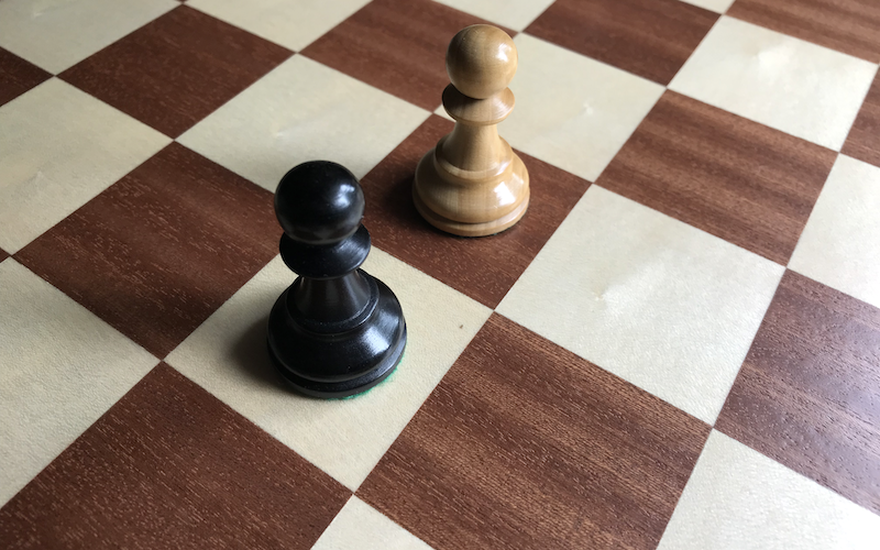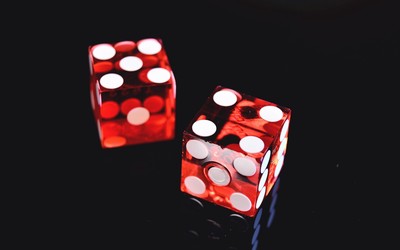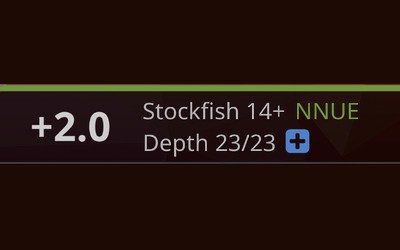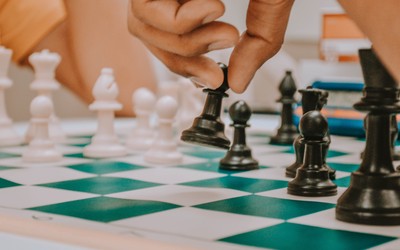
MatthewKCanada
One Year In
A look back at what worked and what didn’t in the first year of my return to chess.It’s been a year since I returned to chess, a year of both highs and lows. I found almost immediately that studying was easy, but that playing was hard. My heart would start pounding and it wasn’t an enjoyable experience. It still happens, but it’s not as bad and I’m in a much better place than when I started.
I returned to chess for the same reason that many took it up in the last two years: The Queen’s Gambit. Years earlier, I had tried playing against the Mac chess app, but after it very quickly mated me I decided that chess wasn’t for me. The TV show changed that. It seemed like something accessible, something I could learn. So, I signed up to Lichess and not long afterwards to Chess.com.
I started watching chess YouTube. I gravitated to Levy Rozman, Gotham Chess, because of his approachability. When he explained a position, I could understand it and see things as he saw them. I found I played better after watching his videos. The same for John Bartholomew on the Lichess YouTube channel, and Eric Rosen with his gambits and tricky openings that I specifically picked my opening repertoire to try to avoid.
It quickly became apparent that playing was my main problem. It wasn’t ladder anxiety. I had a fight or flight response to playing. My heart would race. It wasn’t comfortable. Instead of playing, I would end up spending time watching videos and solving tactics puzzles. I needed to do something and I’m a joiner, so I decided that I would force myself to play in tournaments.
I started with a Chess Federation of Canada-rated rapid tournament. It was four Sunday nights of five rounds Swiss of 10+3 chess. I didn’t do very well, but I showed up and played.
The next was the 1st Chesspunks Correspondence Tournament. I had good games and bad games, but I was able to pull out a particularly clutch victory in one game to make it to the second round. I didn’t go any further, but it was a really interesting experience and helped improve my calculation skills. I wrote about my experience in these blog posts: First Time Playing Correspondence, Part 2 of My 100 Days of Chess, and Glad That's Over.
I’m currently playing in the Ono Invitational Classical League as part of the Chesspunks community. It’s been a fantastic experience. I’ve only had one game, which ended ignominiously with an early checkmate from my opponent. I missed, for several moves, an obvious threat from a queen and bishop battery and then the game was over.
The other players in my division of the league have been great. We’re all there for the same reason and everyone is really supportive and understanding. Joining the Chesspunks community has been one of the highlights of the year. It’s a community of adult-improver chess players on Twitter. It is so nice to part of a community that is all about learning.
Where am I at after a year? Things are starting to come together. I feel like I needed a base of knowledge to start feeling comfortable. I had uneven skills a year ago. If I could get out of the opening with a coherent position, I had chances against slightly stronger opponents. I focused for a while on my opening repertoire and that helped a lot. Things still go sideways quite often, but most of the time I come out of the opening about even and with fighting chances (if I don’t blunder them away).
I’ve had a hard time getting into a regular routine. It turns out that it’s hard to learn when you’re not playing. There’s nothing to apply your learning to. Everything you read is, at its best, applicable to tactics puzzles and, at its worst, uselessly theoretical. For instance, I’ve done 3,600 puzzles on Lichess, but I’ve been stuck between 1400 and 1600 for almost the entire time. I have considered getting a coach, but I feel like it would be throwing money away at this point. I don’t know what I don’t know and with so few games played, a coach’s advice would be no better than reading tea leaves.
Recently, I was given a month’s membership in Aimchess by a fellow Chesspunk (thank you!). It's like having an AI coach. I’m only just over a week into using it and it’s been fantastic. It gives you puzzles based on the weaknesses it finds in your actual games. Most importantly for me, it assigns games with a mix of time controls as homework. So far, it is assigning me 4 blitz, 10 rapid, and 2 classical games a week, which means that I've miraculously played more in the last week than in the last three months. It was daunting, but I forced myself to do it and it felt great. I also did all the assigned exercises and afterwards I still had plenty of time to read chess books and watch chess videos for pleasure. No more guilt that I should be learning more about isolated pawns or king-and-bishop endgames or any other random thing I’d picked to work on.
Don’t get me wrong, I don’t think Aimchess is a replacement for a real coach. It is, however, giving me the training and motivation that I think I need at the moment. I expect it will take me to a place where getting a coach will actually be worthwhile. I'm expecting it to help me even out my skills and the ones that don’t even out will be the ones that I need to focus on. I’m only a week in, so we’ll see where this goes, but I’m very hopeful.
I’ve built up a library of chess books, but like with puzzles, there isn’t much use in reading about chess if you aren’t applying what you learn by playing. The recent push with Aimchess has been accompanied by my reading of Move First, Think Later by Willy Hendricks. I trained as a scientist, so its approach is really speaking to me and helping me set realistic expectations for my performance. Perhaps more on that book in another blog post after I finish it.
One last thing I should mention. I started a #100daysofchess challenge back in September and rather than tweeting about it each day, I summarized the first few weeks of it in two blog posts: Starting My 100 Days of Chess, and Part 2 of My 100 Days of Chess. Unfortunately, I'm not planning on a Part 3. I had hoped that it would give some structure to my chess studying and playing, but that didn’t happen. While it was a bit of disappointment to give it up, it had become more of a chore than a motivation. I consider the attempt as just another part of my learning experience in the first year.
All in all, I’m pretty happy with where I am after a year. Now that I’ve figured out things a bit better, I’m hoping this year will be even better.
First game played: https://www.chess.com/game/live/11053377763
Playing white. A lucky win from an otherwise completely lost position. He didn’t see the threat from my queen and I didn’t see the threat from his rook. Luckily, I was just in time.
Most memorable game: https://www.chess.com/game/daily/359953203
Playing black. The win that got me into the second round of the 1st Chesspunks Correspondence Tournament. My much stronger opponent forgot that his queen was hanging. It was still a fight to deal with his knight and I could have won much sooner if I’d gone after his rook with my king.
Most ignominious defeat:
Playing black. Should I take the bishop on c3? As it turns out, absolutely. At the time, I thought it was boxed in and I could get more play out of my knight. I was so, so wrong. :)




